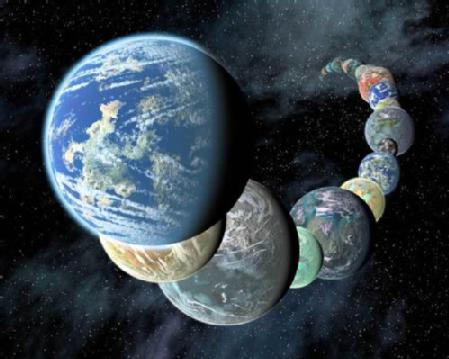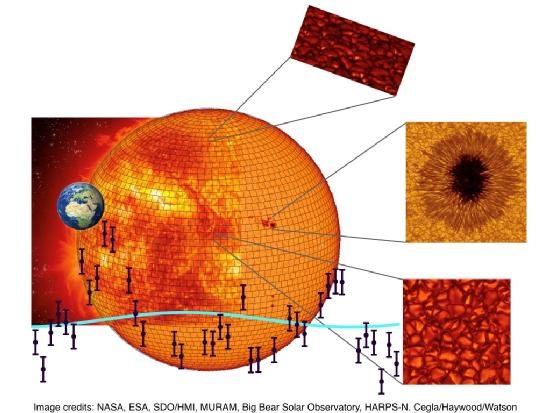Dr Heather Cegla, UKRI Future Leaders Fellowship
A Pathway to the Confirmation and Characterisation of Habitable Alien Worlds
"Are we alone in the Universe?" Since the confirmation of the first planets outside our solar system in the 1990s, we have made tremendous progress towards answering this question.
Yet, the confirmation of a true Earth-like planet still evades us. If we are to truly understand the origins of life in the cosmos, we must create a complete picture of planetary formation, evolution and habitability.
Each of these aspects requires a detailed knowledge of sun-like stars. This is because we study exoplanets indirectly, by analysing their much more luminous host stars.
For example, most planet confirmation relies on measuring the Doppler wobble of the host star, induced by the presence of the planet. We can also learn about a planet's dynamical history from mapping its projected orbit as it transits its host star.
But if there are or irregularities, on the star's surface, this can impact planetary interpretations, and even completely swamp the signals coming from rocky worlds.

Advances in astrophysics and exoplanet discovery have unveiled thousands of planets outside our solar system. However, the confirmation of a true Earth-like planet still evades us. Image credit: NASA/JPL-Caltech/R. Hurt (SSC-Caltech).

Dr Cegla’s team will use 3D simulations to 'tile’ model stars and study stellar surfaces in extreme detail (above: two simulation snapshots illustrating the boiling surface of our Sun). They will also use empirical observations of transiting planets to probe and spatially resolve distant Sun-like stars (note the Earth is not to scale in this diagram). The team will disentangle the various signals arising from irregularities on exoplanet host stars. This will allow them to unveil minute planetary signals previously hidden in this ’stellar nosie' - opening the pathway to the future confirmation of rocky, temperate worlds.
Under her UKRI Future Leaders Fellowship, Dr Heather Cegla's team will seek to understand and disentangle a fundamental barrier on the pathway to confirming other Earths: The stellar surface inhomogeneities from convection.
The team will study the surfaces of stars using a two-pronged approach: Using state-of-the-art 3D simulations and using transiting planets to empirically probe stellar surfaces.
With this two-pronged approach, the team will aim to push the frontiers of astronomy towards the future confirmation and characterisation of habitable alien worlds, and help answer whether or not we are truly alone in the Universe.
